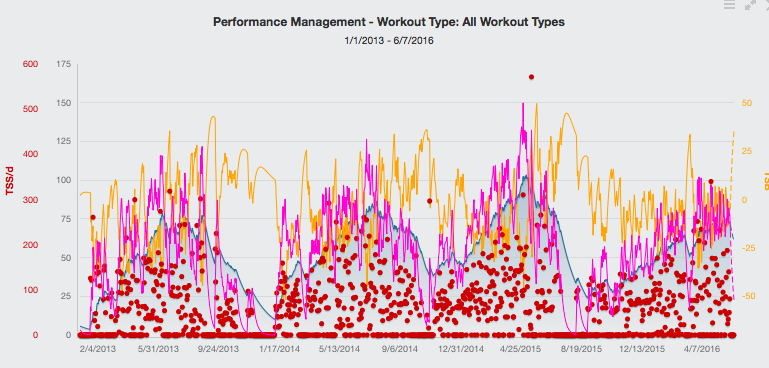
Rest = Strength Building
While at rest (sleep), your body recovers in a way that isn’t fully maximized if continuously moving or exercising. During your deep sleep cycle, the natural hormone (Growth Hormone) is released and allows your muscles to recover and body to heal from training. Have you ever heard of professional cyclists/runners/triathletes taking their sleep very seriously? Its because without this sleep and rest, they couldn’t handle the training load or their body wouldn’t adapt fully to the stressors being put on it! Sleep is very important and if you aren’t getting quality sleep then you're not fully maximizing your training.
Over-training Injuries
Beyond the sleep, many athletes fall into the training rut of always looking to do more. This is a common mistake made by many athletes looking to get into fantastic shape. This is often the case for athletes that don’t track training load or any metrics. While I am all for a free-spirit and letting your body tell you how to run/ride… the mind can often play tricks on these athletes and tell them that they can handle more. As the athlete continues to train and mentally push for results, they don’t allow their muscles the days to recover and therefore miss the entire point of training. We train so we can rest, we rest so we can get stronger. One of the largest side-effects of not resting is injuries and this is often where you find the running injuries with athletes. They didn’t track their training load, their mind told them to keep pushing, and their body broke down. This is common but it doesn’t have to be! Learn how to track training load and learn when to recover! Recovery is when you actually get stronger!
Burnout
While sleep is important and overtraining injuries are painful, burnout may be the worst thing possible for any athlete. As competitive individuals we are constantly seeking an upper hand in any situation and that is no different for athletes. We look to train more so we can be faster. When we get fast we want to keep getting stronger and we have these unrealistic expectations for ourselves. I want athletes to read this part carefully… ITS NATURAL TO HAVE AN OFF-SEASON… AND NEEDED! If you are constantly maintaining a high level of fitness, your body will eventually push back and you won’t be able to maintain your results. With more training you will start to stress yourself out and question why are you even training if you can’t get faster. This is a slippery slope and will eventually lead to burnout and not wanting to ride your bike or run. Unrealistic expectations made entirely by you due to your lack of rest and recovery.
Conclusion
This is just a small glimpse into why rest and recovery may be the most important part of your training. It will allow you to adapt to your training and actually see the gains. It will allow your muscles to recover to limit risk of over-training injuries. It will also allow you to enjoy the rest days and relieve some mental stress from your training which could lead to burnout. For any athlete seeking top end performance, it is going to be a process over many years. You can not go from beginner to pro in 1 season and your training should not intend to do so. A well structured training plan will make you much faster in 1 year, but that is only due to the specific builds and rest needed to adapt. For optimal success, trust the rest and recovery process for 3-7 years and be amazed with just how strong you can become as an athlete.
For more information, Jeremy Brown of MindRight Multisport and I will be hosting a google hangout Wednesday June 1, 2016 @ 10AM Est. See our Facebook pages for the link.
For questions, please email me at [email protected]
 RSS Feed
RSS Feed
